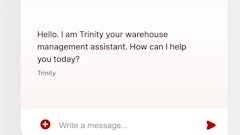Chicago—Nov. 8, 2013—hybris, an SAP company and commerce platform provider, recently commissioned and presented an exclusive study entitled Online and Mobile Are Transforming B2B Commerce. This research, conducted by Forrester Consulting, is a comprehensive global study that explored what impact e-commerce has on how business-to-business (B2B) companies sell their products and services.
The report found that a fundamental transformation is happening in how businesses are acquiring and retaining customers in this market. In fact, U.S. B2B e-commerce revenue more than doubled that of business to consumer (B2C)—with $559 billion annually in sales, according to a different Forrester Research report, Key Trends in B2B e-Commerce for 2013. The research also showed that B2B players that fail to embrace online and mobile as leading channels risk losing market share in the short and medium term, and sustainable competitive advantage in the long term.
“B2B companies must implement effective e-commerce strategies sooner rather than later or risk losing customers to competitors who are already doing so,” said Brian Walker, senior vice president of strategy at hybris. “By recognizing the potential and market value of selling online, B2B businesses will come to find that e-commerce is a goldmine for retaining customers and building loyalty.”
Overall, the Online and Mobile Are Transforming B2B Commerce research yielded three key findings:
- Selling online and on mobile devices represents a significant new opportunity for B2B companies.
- B2B companies that wait too long to implement e-commerce assume a big risk.
- Self-service tools are changing the way in which B2B customers interact with companies.
B2B customers are also B2C customers and have become accustomed to performing consumer product research online. This has transformed how they expect to research business purchases as well. To underline this point, the study showed that “50 percent of B2B companies currently selling direct to business partners online indicated that their end-user B2B customers are using either consumer websites or B2B versions of consumer websites to purchase products or services for their companies.”
This trend toward increased online buying was picked up in another part of the study, which noted that “69 percent of B2B companies currently selling direct to business partners online expect to stop publishing their print catalogs altogether within the next five years.”
In addition to researching and making purchases online, the study also showed that B2B customers are increasingly using mobile devices to buy online. Furthermore, Forrester’s research indicated that B2B companies already selling online report that more than half of their customers use smartphones to research and make purchases, and more than half also use tablets to make business purchase decisions.
“Mobile is emerging as a valuable channel for B2B commerce. Companies must develop strategies for customers to have a seamless buying experience whether shopping online, or via mobile devices and tablets,” said Walker.
It’s Easier to Influence and Build Loyalty with Online-Only vs. Offline-Only Customers
Forrester found that online-only customers are more likely to add additional items, order products in bulk and make repeat purchases than offline-only customers. B2B companies surveyed also indicated that cross-selling and upselling strategies, and building loyalty are much more effective online than offline.
Forrester’s research also shows that B2B customers are now demanding more from their online shopping experience. Specifically, they want more flexibility when buying online—including access to online and mobile customer service tools 24 hours a day.
“B2B e-commerce enables customers to have complete control of their shopping experience, and customers demand technologies that support research, buying and customer service on their own time and terms,” said Walker. “B2B companies must offer a world-class experience akin to B2C throughout the customer lifecycle to stay ahead of the competition in both revenue and customer loyalty.”
As the study found, B2B customers now research and complete purchases online more than ever before. To take full advantage of the market opportunity for e-commerce, B2B companies must invest in technologies to support e-commerce as it evolves and grows, focus on online and mobile as critical channels of the future, and prepare for competition from already established B2C e-commerce sites and B2B rivals.
Methodology
In this study, Forrester surveyed 717 B2B companies across three major geographies—North America, Europe/Middle East/Africa (EMEA) and the Asia Pacific region—or an average of about 240 respondents per geography. Nearly 50 percent of all respondents, or 353 companies across all three major geographies, indicated they are “currently selling direct to business partners online (B2B).” Each of the three major geographies (North America, EMEA and the Asia Pacific region) produced a minimum of 100 respondents that are “currently selling direct to business partners online (B2B).”
All respondents represented companies that produce a minimum of $250 million in total sales annually, and who were personally responsible for or deeply involved with selling the company’s products or services online. In addition, Forrester conducted seven in-depth interviews with a variety of B2B e-commerce professionals responsible for maintaining their respective online selling organizations.
Questions to the B2B survey participants focused on e-commerce and multichannel buying behavior, incorporating tools and technologies into the buying experience, and identifying details about the international organizational structure required to deliver world-class B2B e-commerce. The study began in May 2013 and was completed in July 2013.


























